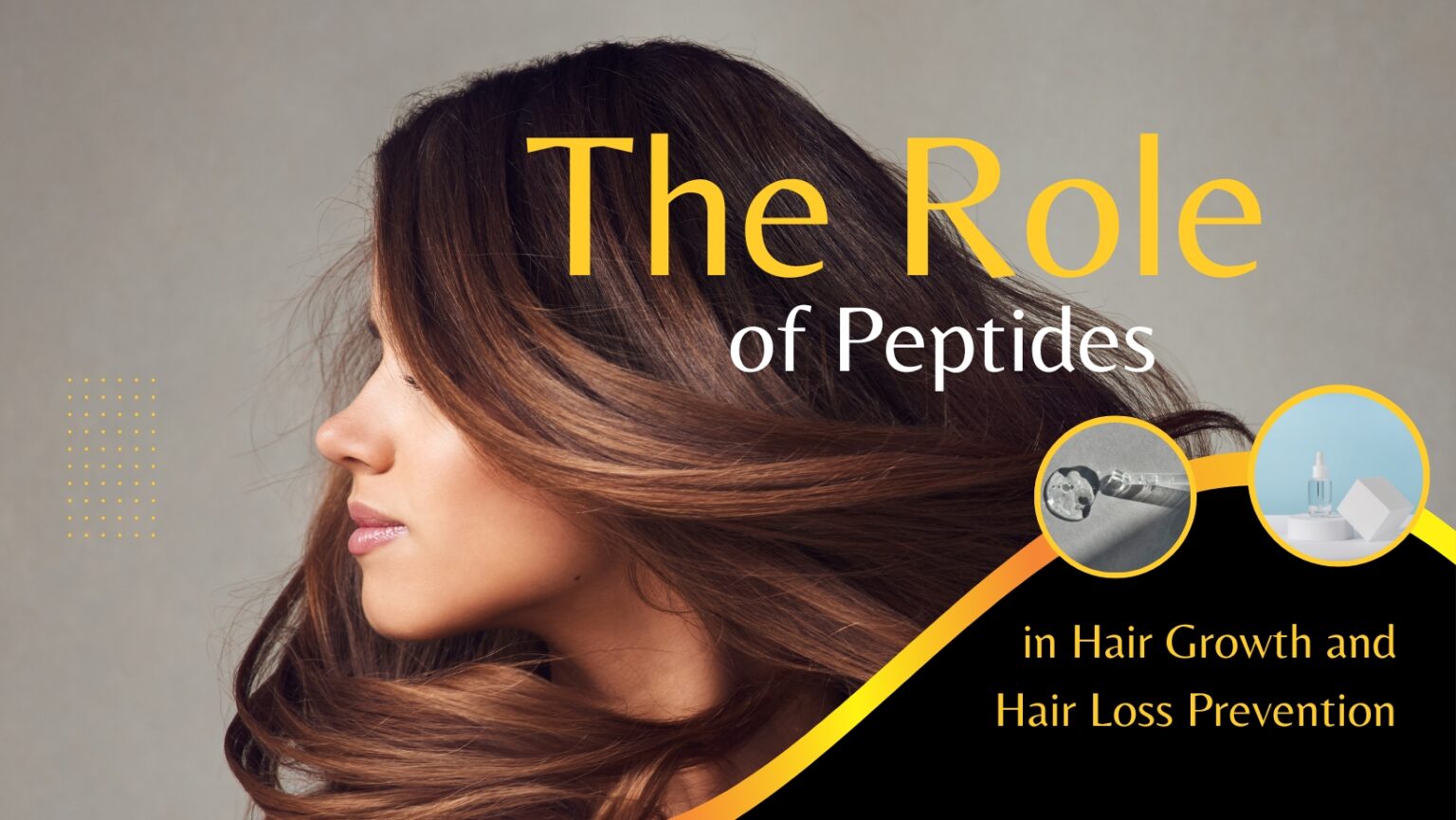Hair loss is a common problem that affects millions of people worldwide. While there are many treatments available for hair loss, some of them can have unpleasant side effects, and others may not be effective for everyone. However, recent studies have shown that peptides may hold promise in preventing hair loss and promoting hair growth. In this blog post, we will discuss the Role of Peptides in Hair Growth and hair loss prevention.
Peptides and Hair Growth
Hair growth is a complex process that involves several biological pathways. One of these pathways is the Wnt signaling pathway, which plays a critical role in hair follicle development and hair growth. Recent studies have shown that peptides can activate the Wnt pathway and promote hair growth.
There are several peptides on this list, but the one commonly associated with hair growth is BPC Peptides, which is not explicitly listed in the options. BPC-157 is a peptide derived from a protein found in the digestive system and has been shown to have regenerative effects on various tissues, including hair follicles. Other peptides on the list may have potential benefits for hair growth, but further research is needed to confirm their effectiveness.
Peptides and Hair Loss Prevention
Hair loss can be caused by several factors, including genetics, hormonal imbalances, and environmental factors. One of the most common causes of hair loss is androgenetic alopecia, which is a hereditary condition that affects both men and women. Androgenetic alopecia is caused by the hormone dihydrotestosterone (DHT), which shrinks hair follicles and eventually leads to hair loss.
Recent studies have shown that peptides can prevent hair loss by inhibiting the production of DHT. One such peptide is called LLLT (Low-Level Laser Therapy) peptide. LLLT peptide has been shown to decrease the activity of 5-alpha reductase, an enzyme that converts testosterone to DHT. By inhibiting the production of DHT, LLLT peptide can prevent hair loss and promote hair growth.
Another peptide that has been shown to prevent hair loss is called keratinocyte growth factor (KGF). KGF is a protein that is naturally present in the body and plays a crucial role in the development of hair follicles. Studies have shown that KGF can stimulate hair growth and prevent hair loss by promoting the proliferation of hair follicle cells and increasing the size of hair follicles.
How to Use Peptides for Hair Growth and Hair Loss Prevention?
Peptides for hair growth and hair loss prevention are available in different forms, including shampoos, conditioners, and serums. Here are some tips for using peptides effectively for hair growth and hair loss prevention:
1. Choose the right peptide: There are many different peptides available for hair growth and hair loss prevention. Choose a peptide that is backed by scientific research and has been shown to be effective for your specific hair concern.
2. Use consistently: Peptides take time to work, so it’s crucial to use them consistently to see results. Follow the instructions on the product label and incorporate them into your daily hair care routine.
3. Massage into the scalp: Peptides are most effective when applied directly to the scalp. Massage the product into the scalp to ensure that it penetrates deeply into the hair follicles.
4. Use in conjunction with other hair care products: Peptides are not a standalone solution for hair growth and hair loss prevention. They work best when used in conjunction with other hair care products, such as shampoos and conditioners, that promote healthy hair and scalp.

